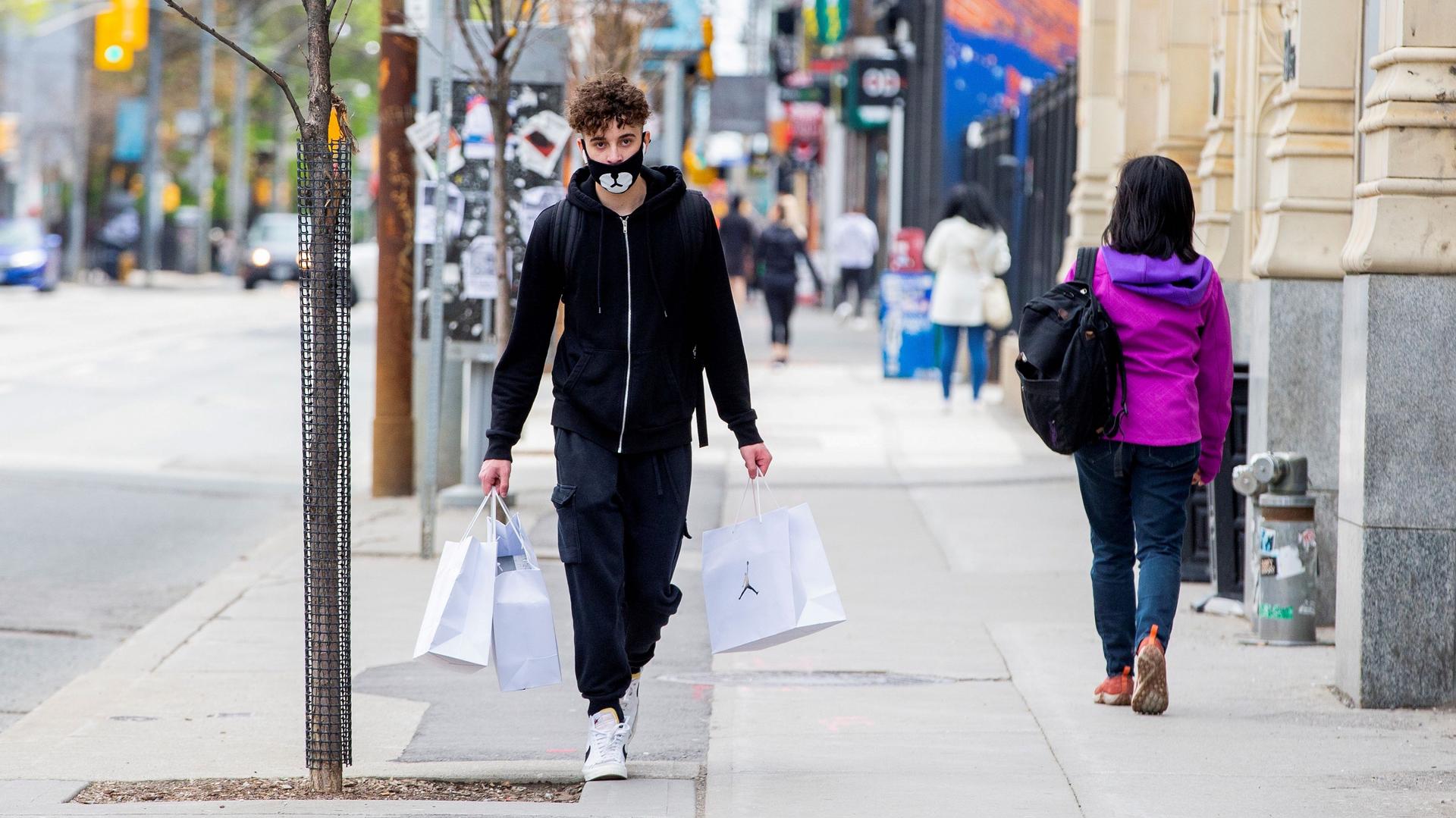Beverly Harlow is clearly in her element as she wanders among the poultry taking over her backyard near Lindsay, Ontario, northeast of Toronto.
A flock of ducklings and 16 chickens peck at her feet. She expects that all these birds will produce a rainbow assortment of eggs — enough to feed the family and send the surplus to a local food bank.
Related: Toronto’s first black police chief resigns
“They’ll be blue, green; I have one breed that does pink, brown and olive color eggs as well,” she said. “So, I’m really excited about that.”
Harlow and her family have lived on this half-acre of land for four years. But she says that until this spring, they could never afford to raise chickens. Between combined salaries of Harlow and her husband, they barely covered the bills. They themselves relied on the food bank.
But Harlow lost her job as a telemarketer and sales representative after the novel coronavirus hit. That qualified her for a $2,000 a month emergency jobless benefit from the Canadian government. Now, Harlow says the family is doing well. They’ve planted a vegetable garden, painted the kitchen and even made room for a homeless teenager.
“It’s really empowered us. It’s done more than just pay the bills. It’s given us options, and it’s given us a little bit of freedom that we’ve never really felt before,” she said.
“It’s really empowered us. It’s done more than just pay the bills. It’s given us options, and it’s given us a little bit of freedom that we’ve never really felt before,” she said.
Related: Canadians contend with etiquette questions as they double their social bubbles
The Canadian emergency jobless benefit is a temporary program. Anyone who lost their job or couldn’t work because they got sick can apply for it by answering a few simple questions online.
It’s also turned into what may be the world’s largest experiment with a universal basic income. More than 8 million Canadians have applied. And as governments scramble to come up with ways to financially support people out of work because of the pandemic, many economists and politicians say the Canadian program is proof the time has finally come for a no-strings-attached, guaranteed income.
Wayne Lewchuk, an economic historian at McMaster University in Hamilton, Ontario, said a universal basic income is “modern policy for a modern labor market.”
Lewchuk was one of the experts hired to monitor a recent universal basic income experiment in Ontario, Canada’s largest province. In that case, the government enrolled 4,000 low-income earners in a pilot project. They were offered a no-strings-attached, fixed annual income of about $17,000 for individuals and $24,000 for a couple. They were encouraged to keep working and could earn a total of $34,000 before their government income was cut off.
Related: Indigenous groups in Canada fight to stay closed as restrictions ease
Less than halfway through the experiment, a provincial election brought in a new government, and the experiment was canceled. There were no definitive results. But earlier this year, Lewchuk and a team of researchers surveyed 200 participants.
“Bottom line is it was a great success for people who were on the pilot.”
“Bottom line is it was a great success for people who were on the pilot,” Lewchuck said.
He says a majority smoked less, drank less, ate better, stayed healthier and kept their jobs. A third even got new, better-paying work.
“It gave them a floor below which they couldn’t fall, and it gave them more confidence and security, and it meant that they could either go out and look for a better job, take a chance on a better job, or they could advance their training and get more education.”
Related: ‘Gogh By Car’ to this Toronto art exhibit
Lewchuck argues that with so much economic damage caused by the coronavirus pandemic, this kind of safety net will become more important than ever.
Harlow says she used to think the idea of a universal basic income was a joke, but her own experience has changed her mind completely.
“Worrying about if you’re going to eat or pay hydro really breaks you down, and it puts you in this cage mentally that you can’t think past, whereas now, the cage is gone and I can think bigger,” she said.
Harlow still hasn’t found a new job and says she’d like to go back to school. “We’re growing, and we’re cultivating a future. And that money has just empowered — like the word empower is just all I can say about it.”
Prime Minister Justin Trudeau has announced that Canada’s emergency response benefit will be extended for another two months. He said the pandemic is an unprecedented challenge for the country and a lot of people need this support while they look for work.
Our coverage reaches millions each week, but only a small fraction of listeners contribute to sustain our program. We still need 224 more people to donate $100 or $10/monthly to unlock our $67,000 match. Will you help us get there today?
